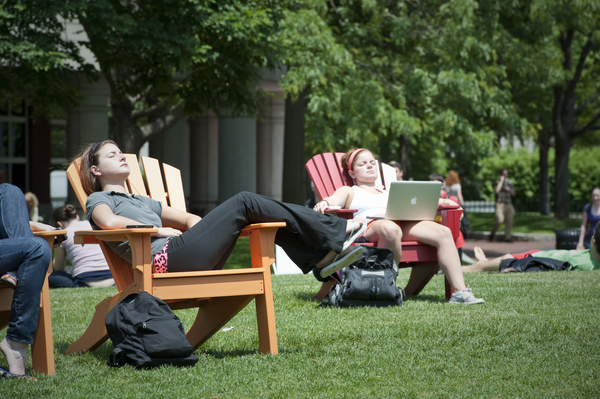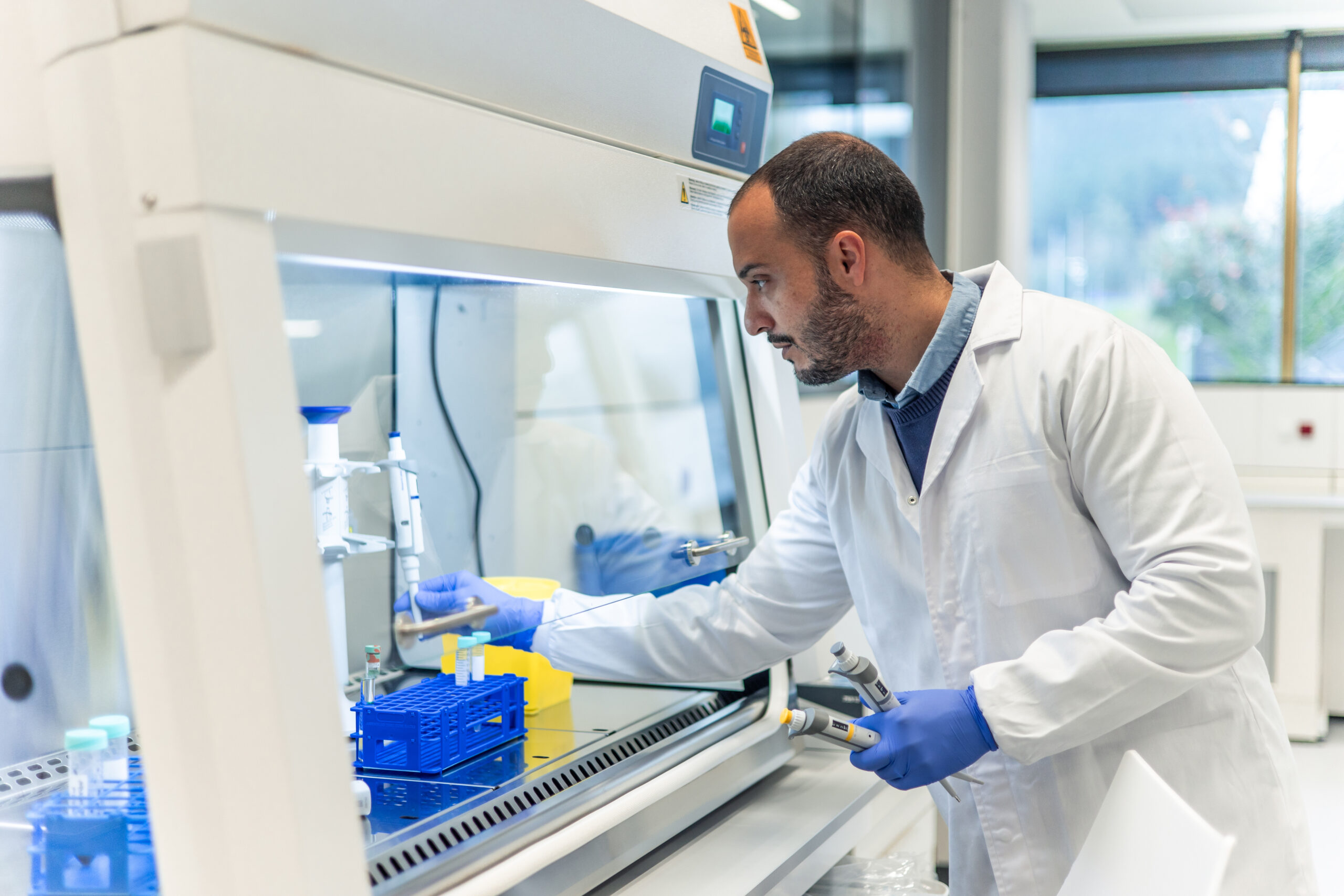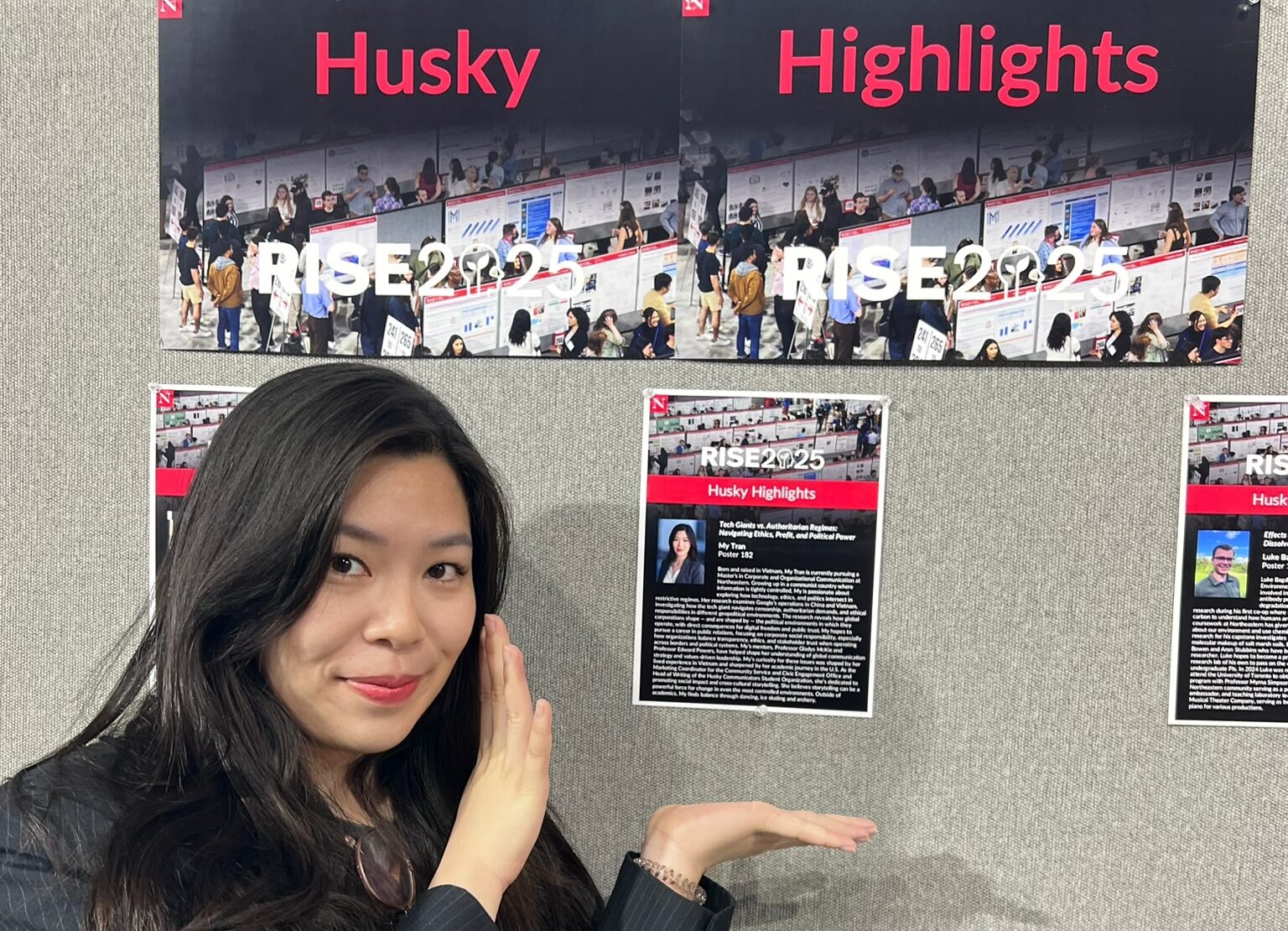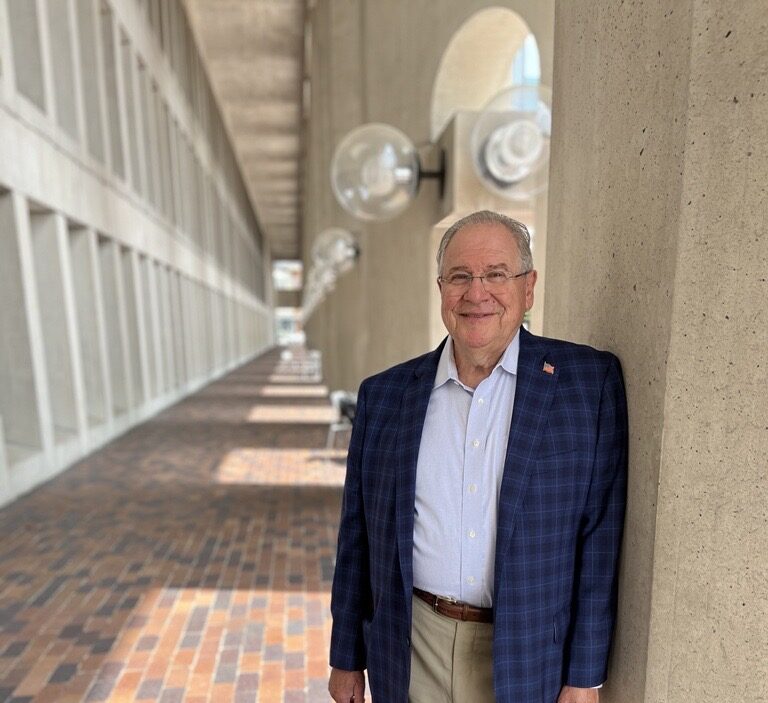‘I Want To Be Able To Change Things at Scale’
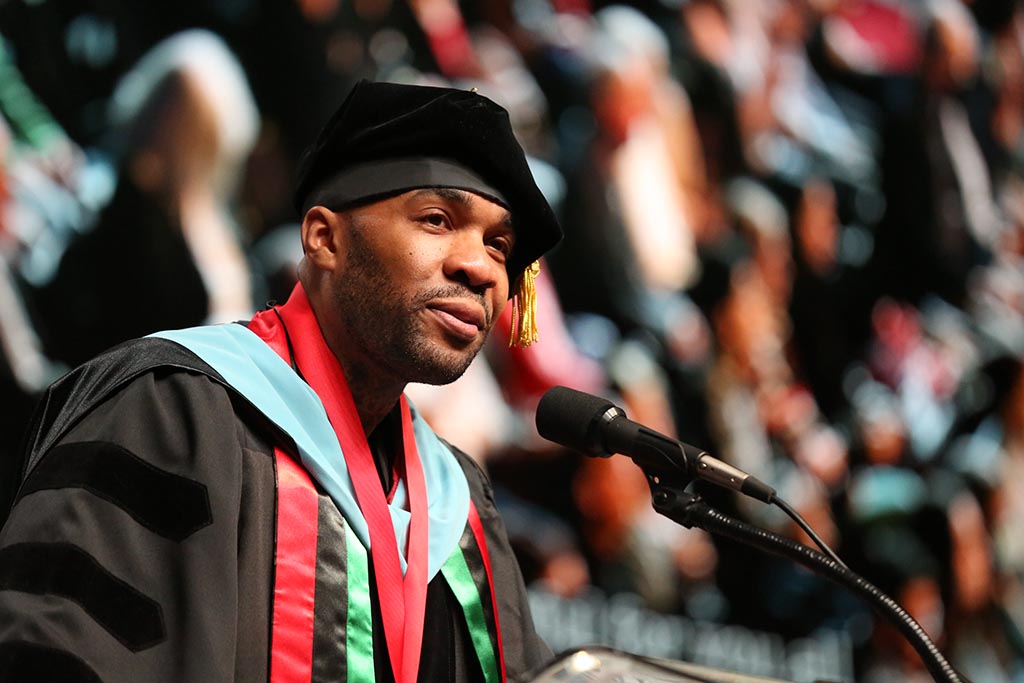
In his work as an educator and an advocate for social justice, Dean’s Medal Award Winner Jae Williams harnesses the power of story

According to Jae Williams (EdD, ’22), it was music that taught him how to tell stories—and stories that taught him how to teach. From Marvin Gaye to Jay-Z, the educator, podcaster, and social justice advocate says, the narratives of suffering and hope that emerged in the music he loved got into his bones. Now, he says, the storytelling instincts he first encountered while listening to those songs form the foundation of his pedagogy and his activism.
“Stories are what make us human,” says Williams, who this year was awarded the prestigious Dean’s Medal for Outstanding Doctoral Work. “In my classes, I try to connect any complex concept to a practical story of how people engage. It’s very difficult for us to remember things that are not connected to story.”
Williams has taught digital storytelling at Berklee College of Music and at Emerson College (both in Boston), worked as a video production instructor at institutions including the Cambridge Center for the Arts, and served as a film and creative-writing mentor at Boston’s Institute of Contemporary Art.
Recently, he began two new projects that combine his passion for storytelling and teaching with his pursuit of equity and inclusion as an advocate for social justice.
In June, he launched a podcast, “Dr. Jae’s Office Hours,” in which he invites experts in diverse fields to discuss their work, an approach that has yielded an eclectic range of topics reflecting the unusual breadth of his own interests and experience. Recent episode titles include “Be UNAFRAID to Ruffle Feathers” with Dr. Sylvia Spears, vice president for administration and innovation and distinguished professor of educational equity and social justice at College Unbound; “How to Balance Professionalism and Authenticity,” featuring advice from author and educator Dr. Marcus Broadhead; and “The Process of a Creative Producer,” with Nerissa Williams Scott, creative producer and CEO of That Child Got Talent Entertainment.
“Dr. Jae’s Office Hours is a podcast highlighting the work and stories of this generation’s creative thinkers, leaders, and dreamers,” Williams says. “And it’s a personal and professional-development podcast for college students of color—because I felt like it’s almost impossible to be what you can’t see. And I’m a product of that. I’m a product of being able to see all the different things that I wanted to explore, but not seeing anybody that looked like me doing them.”
The Creative Café Collective
Williams is also the originator of the Creative Café Collective, a media production company that creates educational content for higher education and students of color. The goal of the Collective, Williams says, is to make higher education a more welcoming space for students of all backgrounds—but especially those who have been traditionally underrepresented.
“The Creative Café Collective is a student retention, belonging, and inclusion program for students of color,” Williams says. “It’s open to all students, but it centers students of color at these predominantly white institutions to give them an opportunity to feel special, and to feel like once they graduate, they have a network of people that actually care and actually want to help them succeed and thrive in their career paths.”
Williams’ own career has reflected the range of his talents, with an emphasis on finding frames and narratives to express individual, community, and institutional stories in compelling ways.
He served as senior communications coordinator at Perkins School for the Blind in Watertown, Mass., as associate director of content strategy at Emerson College, and as director of special projects at Emerson’s Social Justice Center. He also serves on the boards of multiple nonprofits, and he has won awards that include Emerson’s Young Alumni Achievement Award and three Independent Music Video Director of the Month awards from MTV.
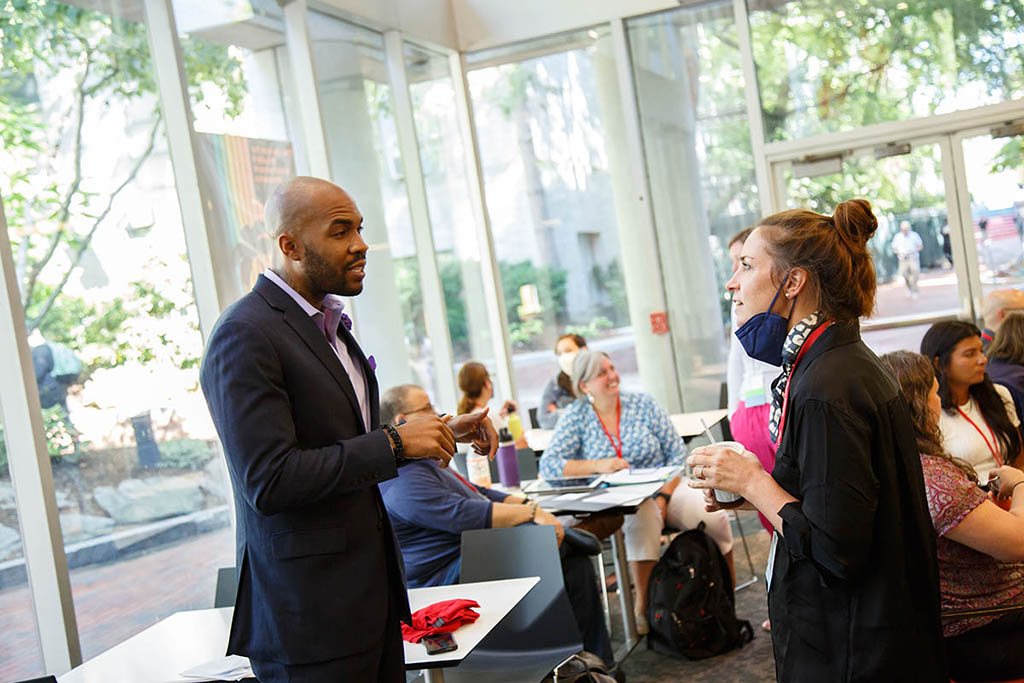
Educational Inspiration
Williams traces his interest in education to a classroom at the Perkins School, where in the summer of 2013 he signed on to help blind students learn to create and direct films. When parents came to see the final presentations, Williams says, watching them and his students shed tears of pride and accomplishment was an indescribable feeling.
“They were literally crying, showing their parents,” Williams says. “And the parents were emotional. And we just had so much fun! That was the first time that I realized teaching is what I love to do. I’ve gone on to teach in a lot of different capacities, but it was in that classroom, teaching those students, with those abilities, the power of storytelling—but more importantly, the power to witness someone discovering themselves, or something new. To me, that is what drives my passion for education. Those students changed my life.”
Stirred by his new-found passion for education, Williams decided that if he wanted to have a significant impact, he would need to deepen his understanding both of his topic and of the world of academia.
“I want to be able to change things at scale,” Williams says. “Not just in a micro-moment in the conference room, or in the break room, or in the hallway, or in the elevator. And the only way I can do this at scale is if I have the language. And so if I can get the language of how [scholars] speak, and blend that with how I speak, then—then—I can make an impact in the way that I believe I was gifted to make.”
Opening doors to those kinds of breakthroughs for others has become an essential part of Williams’ work. His doctoral thesis, America’s Empathy Deficit: Our Bloody Heirloom and the Invisible Backpack, explores the college experience of Black male visual performing-arts students at a pseudonymous institution of higher education in the Northeast. Written as an open letter to his undergraduate alma mater, which he calls Storytelling University, Williams details the obstacles faced by students of color and offers proposals for how to mitigate those challenges.
‘We must face our truths’
In his speech at Northeastern’s 2022 commencement ceremony, Williams drew upon his thesis and his personal experience to instruct and inspire.
“We must face our truths—even our ugly truths—about ourselves and this country,” he told his fellow graduates, urging them to stand up for the disempowered in any way that they could. “If you cannot be the poet, be the poem. If you cannot be on the front lines, then speak up from behind the scenes. If you cannot offer the seat at the table, then ask who is not at the table and why.”
In the video of Williams delivering his speech, there is a moment near the beginning when his voice wavers, and he pauses to compose himself. He blows out a ragged breath, and then he smiles.
“I’m gonna get through this, y’all,” he says. “I’m gonna get through it.”
The palpable emotion of that moment, Williams says, arose from his awareness that the honor he had earned was in fact becoming a reality. Until that moment, he hadn’t really believed it.
“Entering the doctoral program at the College of Professional Studies,” Williams says, “I had a severe case of imposter syndrome. Being a man of color, being a Black man, with body art, hip-hop, all of these things, the world has told me that education is not for me.”
‘Be yourself, be yourself, be yourself’
Support from faculty helped.
“I had amazing professors like [Associate Teaching Professor] Wendy Crocker, and my dissertation supervisor, [Associate Teaching Professor] Lindsay Portnoy, and my third reader, [Associate Teaching Professor] Melissa Parenti,” Williams says. “They just encouraged me and said, you know, be yourself, continue to be yourself, don’t be afraid. Be yourself, be yourself, be yourself.”
But standing at the podium brought to mind some troubling things too, Williams says, about ways the academic establishment had made him feel he didn’t belong.
“When I got up on that stage, and I saw all these people,” Williams says, “it was so overwhelming, because I’m like, you guys don’t even know what it took for me to get to this point.”
Having completed his thesis—and earned the highest honor CPS confers upon a doctoral graduate—Williams is now focused on unifying two essential strands of the passions in his life.
“In terms of storytelling and my education journey, I’m really trying to make them into one cohesive thing,” he says. “When my students see me, and they see me with my shorts, or my Jordans, or my Chuck Taylors and my tattoos and my hat, they’re like, ‘Wow, now I’ve actually seen somebody that looks completely different but is operating at the same exact level.’ So now when they see a bald Black guy with a beard and tattoos, they’re not thinking he’s a threat. They’re not thinking he’s a basketball player only, or he’s some rapper. They’re thinking, ‘I met Dr. Jae, and he taught me something.’”
